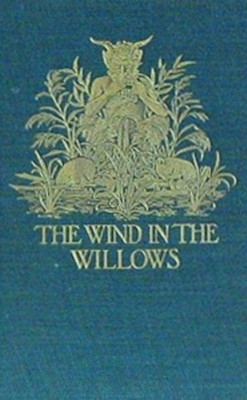'Very well, 'continued the Badger. 'But when the days are longer and warmer, then we'll do something. We-you and me and our friend the Mole here-we'll try to teach Toad a lesson.
很好,獾繼續(xù)說(shuō)。但是日子變長(zhǎng)變暖后,我們還是會(huì)干些事的。我們—你和我,還有我們的朋友,鼴鼠—我們?cè)O(shè)法教訓(xùn)他一下。
We won't listen to any silliness. We'll bring him back to reason, and turn him into a sensible Toad at last.
我們不愿再聽(tīng)到任何蠢事了。我們要讓他恢復(fù)理智,最后變成聰明的癩蛤蟆。
But now, it's time for bed. Don't hurry tomorrow morning-come for breakfast as late as you want! '
但是現(xiàn)在該睡覺(jué)了,明天早上不要趕時(shí)間—睡夠了再用早餐!
The two tired animals slept long and deeply, and came down to breakfast very late indeed. In the kitchen they found two young hedgehogs, busy with bowls of bread and hot milk.
這兩只疲倦的動(dòng)物沉沉入睡了很長(zhǎng)時(shí)間,的確很遲才下來(lái)吃早餐。在廚房里他們看見(jiàn)兩只小豪豬正忙著吃碗里的面包和熱牛奶。
'Hello! 'said the Rat pleasantly. 'Where did you two come from? Lost your way in the snow, I suppose?'
你們好!水鼠愉快地說(shuō),你們倆從哪兒來(lái)?在雪地里迷路了吧,我猜?
'Yes, sir, 'said one of the hedgehogs politely.
是的,先生,其中一只豪豬禮貌地答道,
'We got lost on the way to school, and Mr Badger said we could come in and have some breakfast. '
我們?nèi)W(xué)校的路上迷了路,獾先生說(shuō)我們可以進(jìn)來(lái)用些早餐。
The breakfast things were all ready on the table, and the Mole and the Rat quickly got to work.
早餐配料已準(zhǔn)備好在桌子上,鼴鼠和水鼠很快開(kāi)始工作。
The Rat made the coffee while the Mole fried several pieces of bread and an enormous number of eggs.
水鼠煮咖啡,鼴鼠煎了幾片面包和一大堆雞蛋。
When the door bell rang, one of the hedgehogs went to answer the door.
門(mén)鈴響了,一只豪豬起身去開(kāi)門(mén),
He came back followed by the Otter, who gave a shout of happiness when he saw the Rat.
回來(lái)時(shí)后面跟著水獺,當(dāng)他看見(jiàn)水鼠,高興地叫了起來(lái)。
He ran across the room and almost knocked the Rat off his chair.
他小跑著穿過(guò)房間,差點(diǎn)把水鼠從椅子上撞了下來(lái)。
'Get off! 'said the Raf, with his mouth full of fried bread.
走開(kāi)!水鼠說(shuō)道,嘴里塞滿(mǎn)了煎面包。

關(guān)于《風(fēng)雨河岸柳》
作者用詩(shī)一樣唯美的語(yǔ)言將故事娓娓道來(lái),使每一個(gè)讀者都將被緊緊扣住心弦,被那唯美的語(yǔ)言深深吸引。












